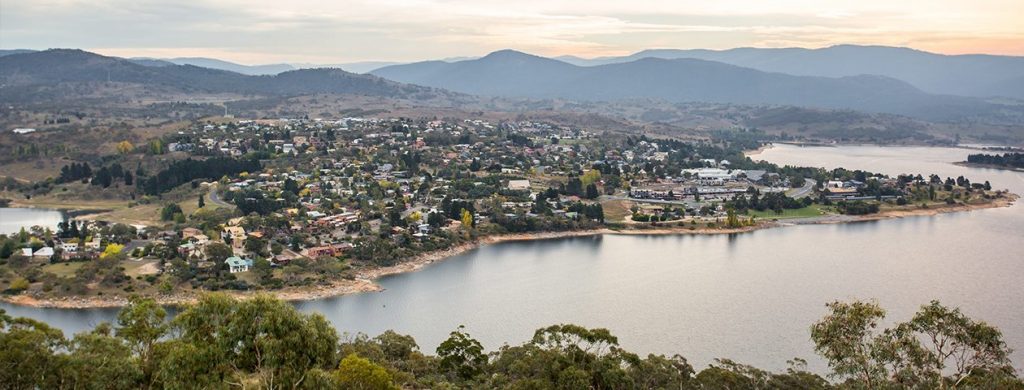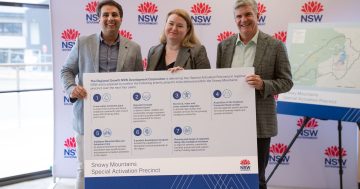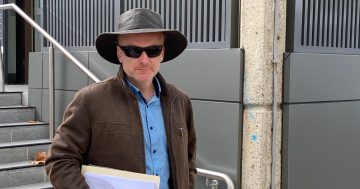
Jindabyne’s most recent boil water alert was lifted on 11 January after NSW Health said turbidity levels in the reticulation system had returned to safe levels. Photo: Tourism Snowy Mountains.
The Snowy Monaro Regional Council (SMRC) has called on the NSW Government to prioritise investment into Jindabyne’s water and wastewater infrastructure through its Special Activation Precinct (SAP).
Over the past two years, Jindabyne has had five boil water alerts, which have left the town without drinkable tap water for a total of 41 days. But the issue has been decades in the making.
It’s due to the current water treatment system being unable to maintain the appropriate water quality standards through severe weather, low lake levels, and being in proximity to the Mowamba aqueduct. Jindabyne’s sewage treatment plant is also near capacity, leaving it unprepared for the growth demands of the town.
The SAP covers 4879 hectares and was introduced to deliver projects that would address the future needs of the community and tourists to Jindabyne and the Snowy Mountains region.
Aligned with the government’s priorities, it seeks to address housing shortages and diversity in Jindabyne while maintaining the environmental and heritage values of the region.
Following Minister for Skills, TAFE and Tertiary Education Steve Whan’s declaration of support on the ABC, the council reiterated its calls for the Snowy Mountains SAP to fund a permanent solution that would upgrade Jindabyne’s water and wastewater treatment plants.
The Member for Monaro has already been meeting with Jindabyne Mayor Chris Hanna and CEO David Hogan over recent months, with the council voicing its appreciation for committing to address the ongoing matter.
In the meantime, an SMRC spokesperson said water used for drinking or food preparation should be brought to a rolling boil for it to be safe.
“Water should then be allowed to cool and stored in a refrigerator in a clean, lidded container,” the spokesperson said.
“Use bottled water – or treated and cooled water as described above – for drinking, washing uncooked food [such as salad vegetables and fruit], making ice, cleaning teeth, gargling, and for your pet’s drinking water. Children should take bottled water or cool boiled water to childcare. Dishes should be washed in hot soapy water or in a dishwasher.
“The NSW Health website includes special considerations and directions for schools, childcare centres, commercial establishments serving food or drinks, using water-header tanks, swimming pools, and spas.”
The council also said there was a page listing any incidents, along with signs and notices in prominent public locations, within accommodation and other local businesses, for when boil water alerts were in effect.
Anyone requiring urgent advice after hours or needing to speak with a member of their water team when offices are open can call the council on 1300 345 345.





